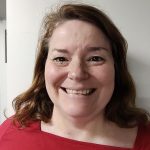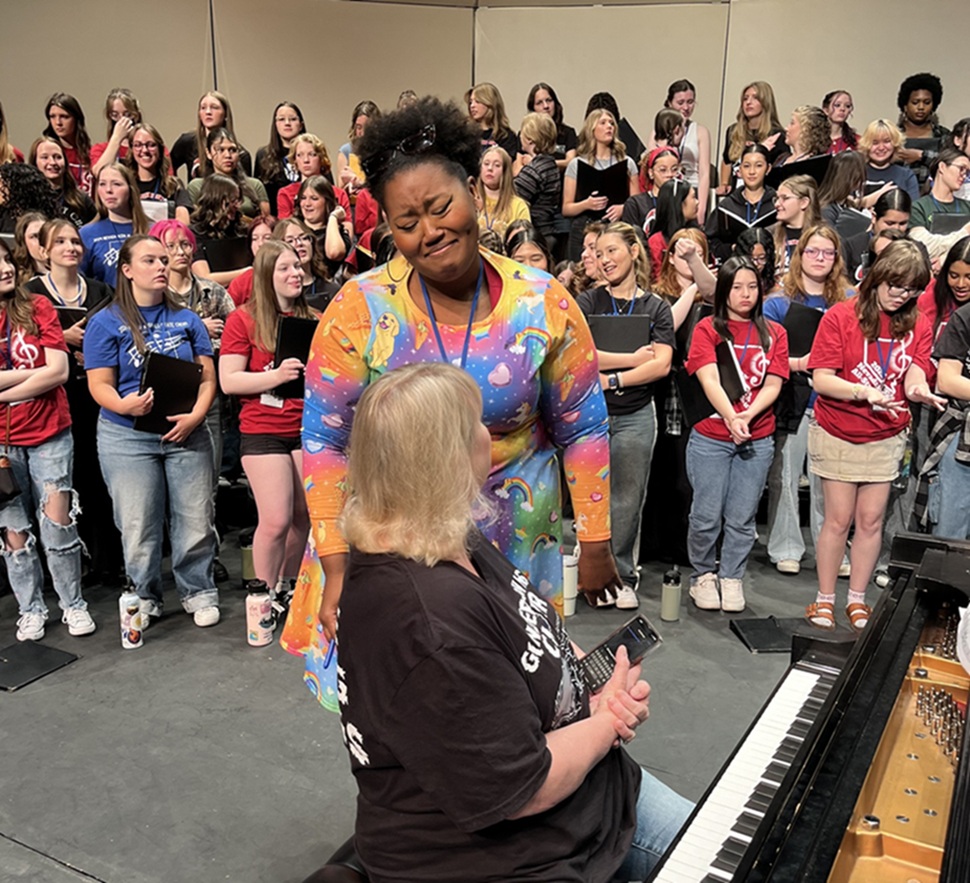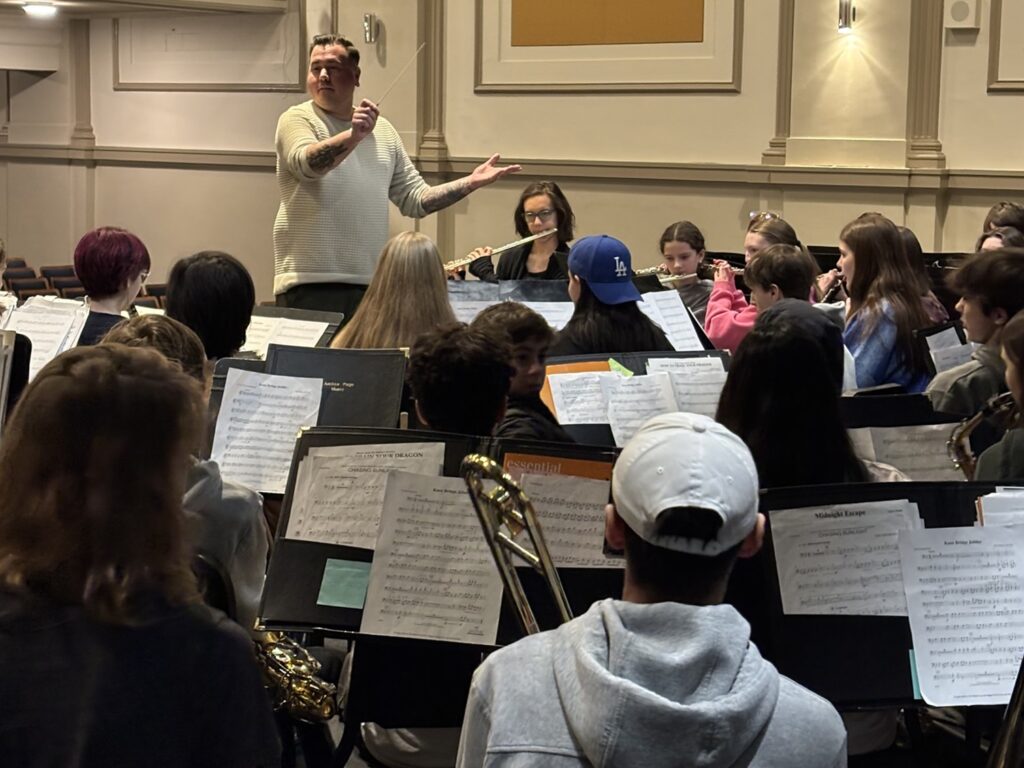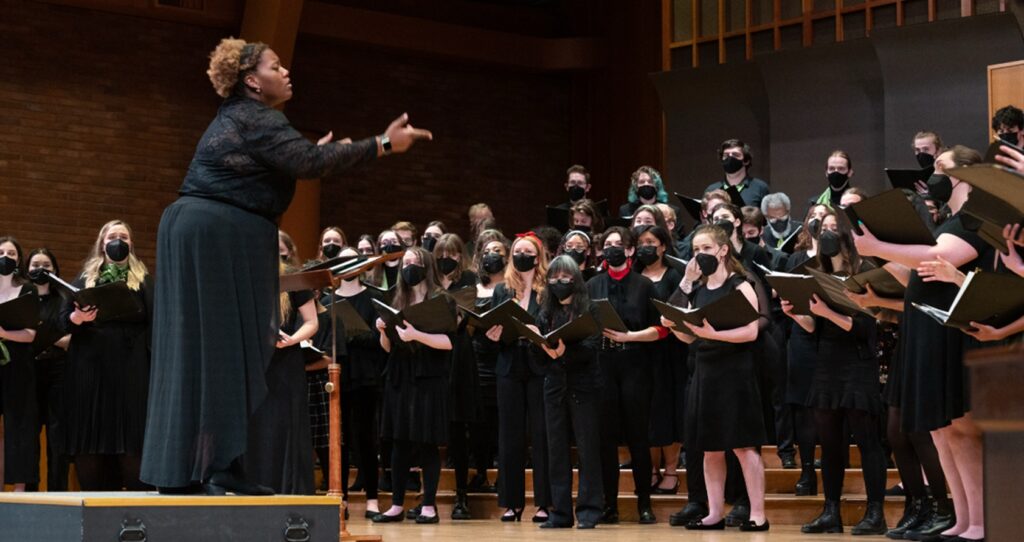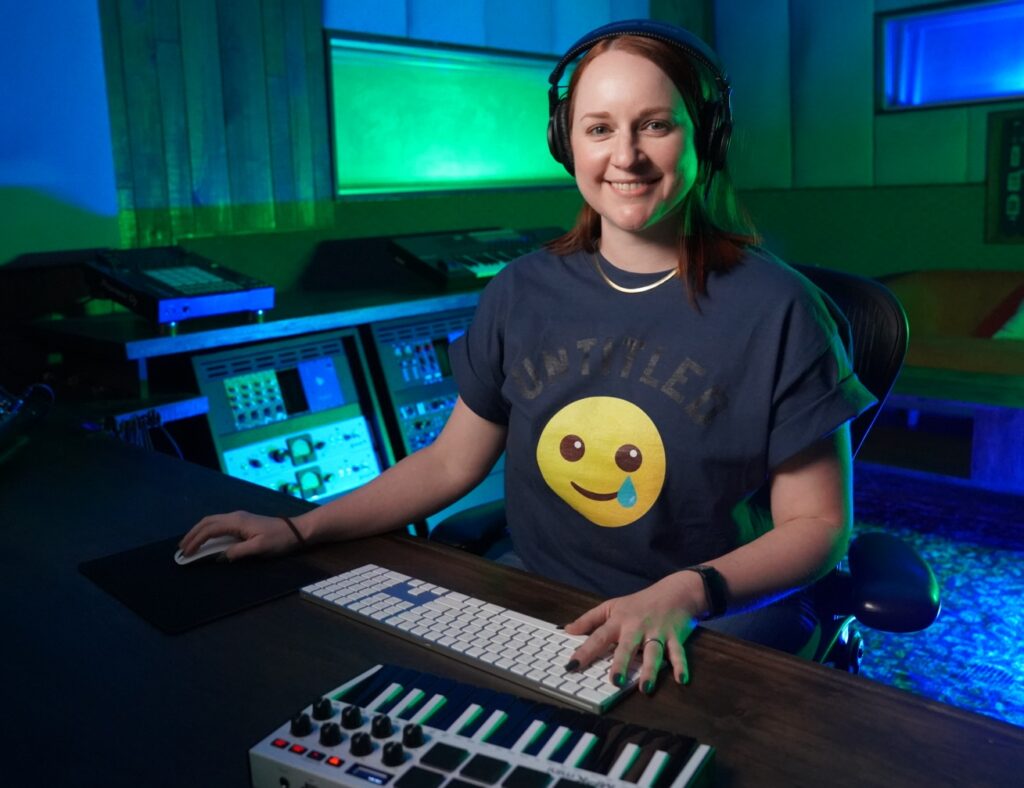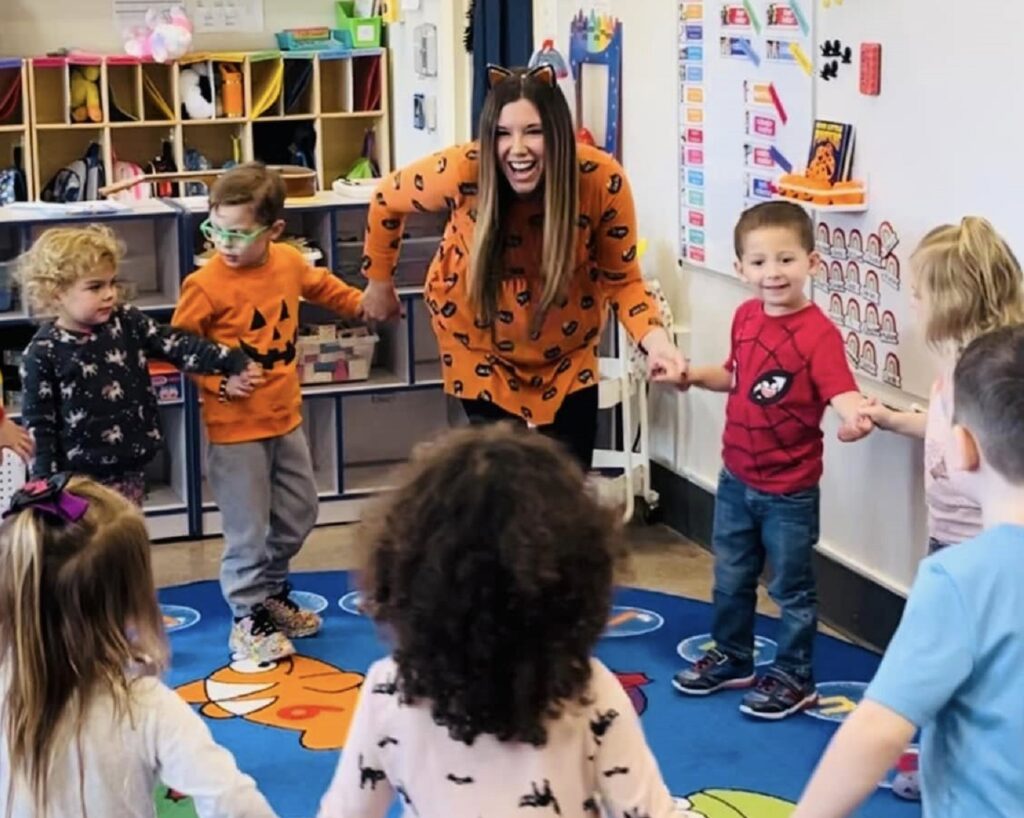Tagged Under:
An Afro-Centric Curriculum Promotes Excellence
At Grace M. James Academy, a middle school for girls in Louisville, Kentucky, the orchestra director explores a unique strings education methodology.
Girls who excel in math and science get into Grace M. James Academy of Excellence, a middle school for girls in Louisville, Kentucky. The magnet school’s STEAM-focus curriculum for girls of color doesn’t negate the need for arts education, and Orchestra Director Gabriella Burdette is committed to developing the right side of her students’ brains with an Afro-centric emphasis that isn’t typical for mainstream music classes.
Grace James, which is part of Jefferson County Public Schools, invests in music, dance and theater classes along with its STEAM courses to offer a more well-rounded education. Students are required to take some kind of arts class, and they indicate first and second choices when filling out the survey for incoming students.
Challenge the Left and Right Side of the Brain
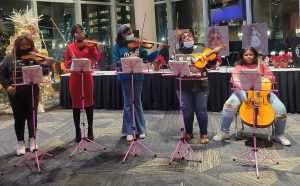
“We actually have a lot of arts in the school; it’s a very strong department,” Burdette says about her school, which just extended its grade levels to include high school. “I think we come in with that other side that everybody needs… that creativity side. We need to come in and help develop the whole brain. I think it works well because of that.”
Some particularly left-brained students who excel in the STEAM environment may struggle with the right-brained nature of music and other arts, but Burdette helps them by letting students take home instruments for extra practice, and making instruction videos the girls can use to practice at home.
Working with pre-teens and young teens — an age group many teachers avoid — gives Burdette a great opportunity to introduce a passion for music.
“I love that they are open to new things,” she says. “I love that they are not already with their mind set into one thing one style or trying just one thing for their whole life. They want a challenge. If it’s not a challenge for them, they are bored.”
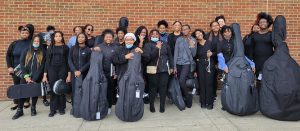
African American Music Roots
While Burdette, who started at Grace James three years ago, still covers the classical composers like Bach and Beethoven, she focuses on Black composers in the six orchestra classes she teaches. Her students, about 90 percent of whom are Black, see themselves and can relate to composers like Florence Price, who was born in 1887 and was the first Black female composer to gain national status.
“Music is part of our history,” says Burdette, a native of Brazil who moved to Kentucky in 2012. “We are performing music that isn’t usually performed. What I want for my program is for the community to see the excellence in these girls.”
Another way Burdette incorporates the school’s Afro-centric focus in her orchestra classes is to ask questions. “If I’m going to include classics and talk about Beethoven or Bach … we have a discussion about the other side, and I ask things like: Were there Black composers from the same era? We always push into the Afro-centric, no matter what I show them.”
Investigate Intersectionality
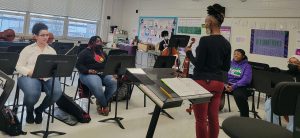
Burdette and her students also talk about intersectionality, which describes the interconnected nature of social categorizations such as race, class and gender, and how they overlap. This complexity applies to the lessons about Price, who wrote symphonies and concertos and pieces for the violin and piano.
“Florence is one that we focus on because she was female and Black and a composer,” Burdette says. “There are a bunch of layers to her story so we include her in not only our discussion and project, but in our repertoire. We not only read about her, but we really discuss the intersectionality of her life.”
Burdette, who was recognized as a 2023 Yamaha “40 Under 40” music educator, explains, “It’s not: ‘Let’s play music by a Black composer and move on.’ It’s deeper than that.”
Through this Afro-centric approach, students are getting a more complete and meaningful music education. “I think they’re experiencing more in getting way deeper experiences,” she says. “This curriculum was challenging at first because I’d never done it. I had no idea what it was or what it looks like. I think the students enjoy learning about and playing composers who look like them.”
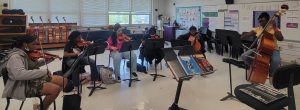
One favorite Price piece Burdette’s class plays is “Adoration,” which is a slow, beautiful, thoughtful and serene song. “It’s a song that you can meditate to, a song for you to just close your eyes and listen to,” Burdette says.
It’s not just music by Black artists from the early 20th century, like Price. Burdette and her students also play songs by more contemporary pop artists like Bruno Mars and Brooke Alford.
Learn from Professionals
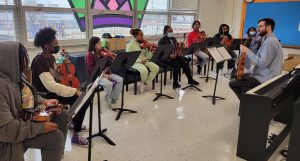
Periodically, Burdette brings in professional musicians from the Louisville Orchestra to work with students on the violin, viola and cello. The school received a grant to host a masterclass with the orchestra musicians. The girls benefit tremendously from meeting and hearing these talented and accomplished people. “The kids think: ‘Wow, I’m impressed. Maybe I can sound like that, too,’” Burdette says.
“I feel like there’s a lot of spaces for Black students to shine in not only the classical world but in the string world,” she says. “We don’t see many students like mine represented in orchestras. I hope my program will change that in the future.”
Grace James strives for excellence, not mediocrity. Students can sense that both in Burdette’s music classroom and elsewhere in the school.
“The most important thing for my girls to see is that I’m investing in them,” Burdette says. “I bring in professionals to show them what they can sound like. They see that I’m trying to give them a high-quality education. I want them here to play their instrument, but I also want them to play with excellence. We’re not going to do average. I think that excites them.”
Strive for Excellence
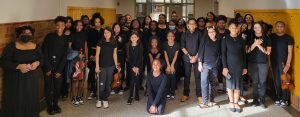 Teaching music, for Burdette, is not just a job. It’s her passion. It’s her calling.
Teaching music, for Burdette, is not just a job. It’s her passion. It’s her calling.
“I have the excitement and the desire to give them an above-average experience,” Burdette says. “Since I joined Grace James, I felt that the school always pushes students to be more than above average. I want the same thing for orchestra. I tell them that a lot: I want you to experience the above average in my class.”
Burdette loves what she does. “I come to school every day wanting to see them, wanting to play music with them, wanting to hear them play and wanting to teach them,” she says enthusiastically. “I think they feel that, and they want to do well because it’s a two-way street









